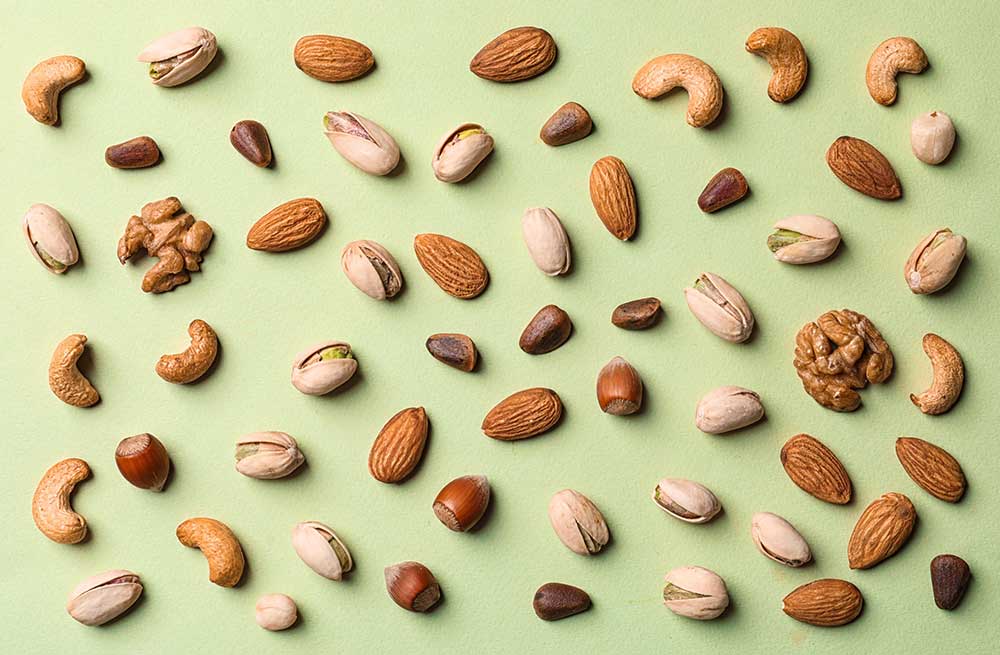You’ve probably heard about “superfoods” in the media, at the supermarket, and from your friends. Remember when kale was all the rage?
The word “superfood” is actually a marketing term aimed to boost sales — foods with health claims tend to be a lot more popular! From kale to quinoa, these foods are no more super than other nutritious foods, but they certainly are beneficial to include in your diet.
Many of these so-called superfoods are staples of the Mediterranean diet — a diet associated with preventing many chronic diseases. Below, we list five Mediterranean superfoods you may have overlooked and how to incorporate them into your super-eating plan!
5 Mediterranean “Superfoods” you probably haven’t thought of, but need to try — let’s get into it!
1 – Sofrito
Sofrito is a type of sauce and cooking method widely used in Mediterranean, Latin American, Spanish, Italian and Portuguese cuisine. It typically consists of garlic, onion, peppers, and tomatoes cooked in olive oil with herbs and spices, like bay leaves. Once cooked, it becomes something like a flavorful tomato-based sauce. It is used to prepare and flavor stews, meat and seafood, and various plant-based dishes.
Sofrito is thought of as one of the main staples of the Mediterranean diet. It is not only delicious, but it’s also nutrient and antioxidant-packed. Research on sofrito has shown that the combination of slow cooking the various vegetables in olive oil enhances the activity of polyphenols and powerful carotenoids like lycopene, which are associated with reduced cardiovascular disease risk and prevention of some cancers.
2 – Extra virgin olive oil
Olive oil, an unsaturated fat known for being heart-healthy, provides a subtle fruity and herby flavor to dishes. When choosing olive oil, go for extra virgin (EVOO), ideally in a dark or tin bottle. The nutrients and antioxidants in olive oil are delicate and easily damaged if exposed to heat or sunlight. Only EVOO is cold-pressed, which means that it is the highest quality olive oil.
Pro-tip: Try drizzling some raw EVOO on top of your soups, as a spread on toast, and as a dressing base in salads!
3 – Sardines
Don’t knock them ‘til you try them! Sardines, salmon, tuna, and mackerel are among the fish with the highest levels of omega-3 fatty acids. Sardines provide a whopping 2 grams of heart-healthy omega-3s per 3-ounce serving. Their high calcium and vitamin D content support bone health and the immune system.
Pro-tip: Sardines are also super easy to find and inexpensive! Try them canned-in-water for $1.99 at Trader Joe’s. You can easily dress them up with some fresh lemon juice and olive oil and serve them atop an arugula salad, or even use them as a substitute in your tuna salad sandwiches!
4 – Nuts and seeds
Nuts and seeds, specifically walnuts and flaxseed, are staples of the Mediterranean diet and also unfairly outshined by superfood powders on the internet.
Walnuts have a ton of the good kind of fats, aka polyunsaturated fats. These can help lower LDL “bad” cholesterol levels and increase HDL “good” cholesterol. Talk about amazing things for your heart health! Walnuts and flaxseeds are excellent sources of alpha-linolenic acid (ALA), which may be converted into some omega-3s.
Pro-tip: Snack on a handful of raw or dry-roasted walnuts with some fruit to keep you satisfied between meals! You can also sprinkle some ground flaxseed into your oats or yogurt.
5 – Dandelion greens
You probably haven’t seen dandelion greens in your local supermarket. But you might have seen them on the side of the road… yes, those! Dandelion greens are a delicacy in the Mediterranean region, and rightfully so! They are an excellent source of vitamins A, E, K, folate, iron, potassium, and magnesium. They also contain inulin, a soluble fiber that supports a healthy gut microbiome.
Pro-tip: Keep an eye out for dandelion greens at your local farmer’s market from early spring to late fall! Try them simply boiled and served with lemon juice and raw extra virgin olive oil.
Work with a Culina Health Dietitian
Have more questions about the Mediterranean diet? At Culina Health, we provide personalized nutrition care with a registered dietitian nutritionist that’s covered by insurance. Get started.






